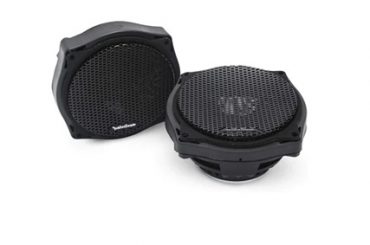Motorcycle License Requirements in Manitoba

To legally operate a motorcycle in Manitoba, a Class 6 license is required. The following are the requirements to obtain a Class 6 license:
- Be at least 16 years of age
- Hold a valid license of any other class
- Successfully complete Manitoba’s Graduated Driver Licence (GDL) program if you have never held a motorcycle license before
Once the above requirements are met, the applicant must pass a knowledge test, meet the vision and medical standards, and successfully complete an approved motorcycle training course.
The next step is to complete the Learner Stage, which requires a minimum of 9 months. During this stage, the rider must display an “L” sign on the back of their motorcycle and is not allowed to carry passengers. After the Learner Stage, the rider must pass a road test and complete the Intermediate Stage, which requires a minimum of 15 months. During this stage, the rider must display an “I” sign on the back of their motorcycle and is allowed to carry passengers.
It is important to note that the requirements for obtaining a Class 6 license may vary for individuals with certain medical conditions. More information can be found on the Manitoba Public Insurance website.
Graduated Licensing for Motorcyclists

In Manitoba, motorcyclists must go through a Graduated Licensing program to obtain a Class 6 license. The program consists of three stages: Learner, Intermediate, and Full License. Each stage has its own set of requirements and restrictions.
Learner Stage
The first stage of the program is the Learner Stage. To obtain a Class 6L learner’s license, the applicant must pass a knowledge test, vision test, and medical exam. They must also complete a motorcycle training course. During this stage, the learner must display an “L” sign on the back of their motorcycle, and they are not allowed to carry passengers or drive on highways.
Intermediate Stage
The Intermediate Stage is the second stage of the program. To apply for an Intermediate Class 6I license, the applicant must be at least 16 years old, have held a Class 6L license for at least nine months, and pass a road test. During this stage, the driver must display an “I” sign on the back of their motorcycle, and they are not allowed to carry more than one passenger or drive on highways between midnight and 5 a.m.
Credit is given for the GDL Class 6 intermediate stage if the driver has previously completed a portion or all of this stage.
Full License Stage
The Full License Stage is the final stage of the program. To obtain a Class 6F full license, the applicant must be at least 16 years old, have held a Class 6I license for at least 15 months, and pass a road test. During this stage, the driver is not subject to any restrictions or requirements.
It is important to note that the Graduated Licensing program is designed to help new drivers acquire the knowledge and skills needed to safely operate a motorcycle. By following the requirements and restrictions at each stage, drivers can gradually build their experience and confidence on the road.
Motorcycle License Testing
To obtain a Class 6 (Motorcycle) license in Manitoba, the applicant must pass a knowledge test and a road test. The knowledge test can be taken at any Manitoba Public Insurance (MPI) service center. Applicants must be at least 16 years of age and hold a valid license of any other class to obtain a Class 6 license.
Knowledge Test
The knowledge test assesses the applicant’s understanding of the rules of the road, traffic signs, and safe driving practices specific to motorcycle operation. The test consists of 30 multiple-choice questions, and the applicant must answer at least 25 questions correctly to pass. The test can be taken in English or French.
Applicants can prepare for the knowledge test by studying the MPI Motorcycle Handbook, which covers topics such as motorcycle controls, defensive driving, and collision avoidance. MPI also offers an online practice test to help applicants prepare for the knowledge test.
Road Test
After passing the knowledge test, the applicant must successfully complete a road test to obtain a Class 6 license. The road test assesses the applicant’s ability to operate a motorcycle safely and effectively in various traffic situations. The test consists of a pre-trip inspection, a test of basic motorcycle control skills, and an on-road evaluation.
During the on-road evaluation, the applicant will be required to demonstrate their ability to perform various maneuvers, such as turning, stopping, and accelerating, in a safe and controlled manner. The examiner will also assess the applicant’s ability to identify and respond to potential hazards on the road.
Applicants can prepare for the road test by taking an approved motorcycle training course, which covers topics such as motorcycle control, collision avoidance, and defensive driving. Safety Services Manitoba is one such provider of motorcycle training courses in Manitoba.
License Renewal and Expiry
In Manitoba, it is important to keep track of your motorcycle license expiry date to avoid any penalties or legal issues. Each year, your license will be reassessed, and you will be required to pay for your driver’s license every year on your anniversary date, which is four months less a day after your birthday.
To renew your license, you can visit any Autopac agent or MPI Service Centre. With our convenient driver’s licenses and Autopac policies, you’ll only need to visit an Autopac agent once every five years, unless you want to change or cancel your driver’s license or policy between renewals. You will receive a renewal notice once every five years when it’s time to renew your driver’s license and/or vehicle insurance.
If you fail to renew your license before the expiry date, you will be required to take a knowledge and road test again. Additionally, you may be subject to penalties and fines. Therefore, it is important to keep track of your license expiry date and renew your license on time.
It is also important to note that if you have held a driver’s license in another country, MPI requires certain information to determine the Class and Stage of license you should hold in Manitoba. To obtain your first driver’s license, you must be at least 16 years old, or 15½ if enrolled in the High School Driver Education program.
Overall, keeping track of your license expiry date and renewing it on time is crucial to avoid any legal issues and penalties.
Safety Courses and Training
Manitoba Public Insurance (MPI) offers a range of motorcycle safety courses and training programs for riders of all skill levels. These courses are designed to help riders improve their skills, knowledge, and confidence on the road, and to reduce the risk of accidents and injuries.
The Basic Motorcycle (Intermediate) course is the minimum requirement for achieving a Class 6 license in Manitoba. This course covers the fundamentals of motorcycle riding, including basic control, turning, and braking techniques. New riders can benefit from taking the Gearing Up (Beginner) Motorcycle Course, which provides additional riding time and more advanced riding techniques.
To enroll in any MPI motorcycle course, riders must hold a 6M motorcycle license (knowledge test) that can be obtained at any MPI Service Centre. All students must provide their own riding gear, including a helmet, gloves, boots, and protective clothing.
In addition to MPI courses, Safety Services Manitoba (SSM) also offers motorcycle training programs for riders of all skill levels. SSM courses include the Basic Rider Course, Experienced Rider Course, and Advanced Rider Course. These courses cover a range of topics, including motorcycle control, hazard avoidance, and defensive riding techniques. Riders can also take part in one-on-one coaching sessions with experienced instructors.
Overall, taking a motorcycle safety course or training program is an excellent way for riders to improve their skills, knowledge, and confidence on the road. By learning proper riding techniques and safety practices, riders can reduce the risk of accidents and injuries, and enjoy the freedom and excitement of riding a motorcycle.

